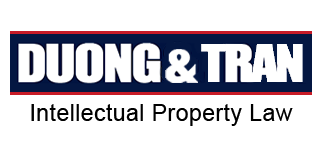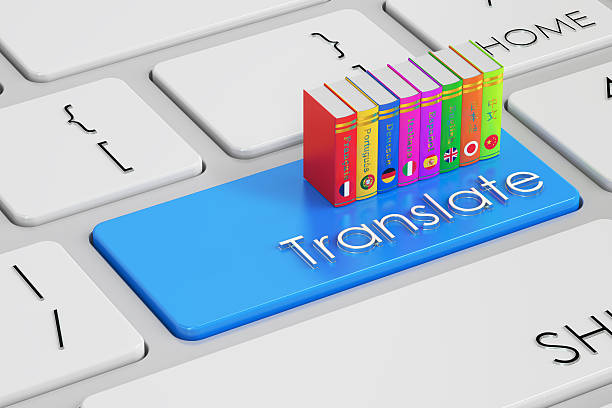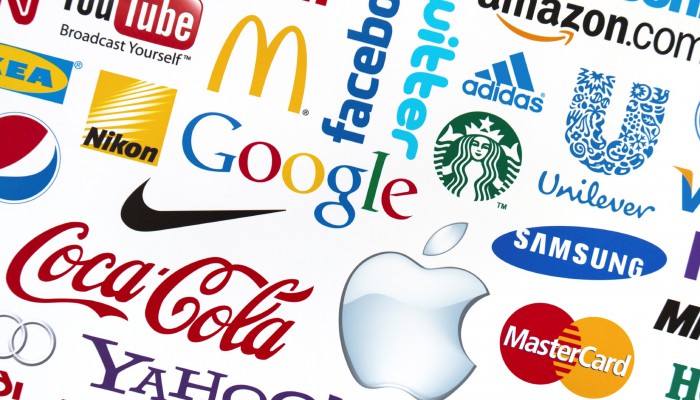- Conducting searches on information concerning the registration of copyright/related rights
- Drafting agreements in respect of the creation of copyrightable works
- Preparing and filing applications for copyright/related rights registration
- Litigation to assert copyright/related rights
- Negotiating, drafting copyright/related rights assignment and license agreements
- Advising on the enforcement of copyright/related rights
- Prosecuting and defending copyright/related rights infringement lawsuits
Copyright and Related rights
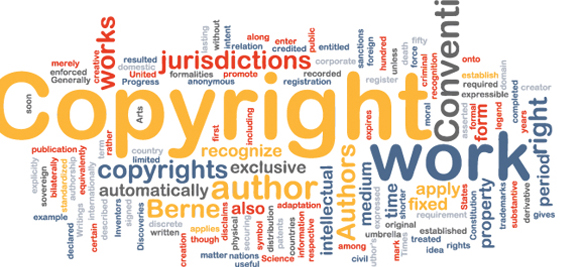
Protected Works
- Literary and scientific works, textbooks, teaching materials, and other works expressed in forms of letters or other writing characters;
- Lectures, presentations and other speeches;
- Journalistic works;
- Musical works;
- Dramatic works;
- Cinematographic works and works created by similar methods;
- Fine art works and applied art works;
- Photographic works;
- Architectural works;
- Graphics, sketches, maps, drawings relevant to topography and scientific works;
- Folk artistic and literary works;
- Computer programs and compilations of data.
The subject matters protected under related rights include the following:
- Performances;
- Phonograms;
- Broadcasting programs;
- Satellite signals carrying encrypted program.
Unprotected Works
- Information merely for news reporting purpose such as daily short pieces of news in newspapers which are merely for news reporting purpose and therefore not creative;
- Legal normative documents, administrative documents, other documents in the judicial sector and the official translation thereof. Administrative documents include documents of State agencies, political organization, socio-political organizations, socio-political and professional organizations, social organizations, socio-professional organizations, economic organizations, units of people’s armed forces and other organizations in accordance with the law;
- Processes, systems, method of operation, definitions, principles and statistics.
Terms of Protection
Terms of copyright protection are stipulated by Article 27 of Intellectual Property Law. Accordingly, moral right is protected indefinitely. For economic rights and the right to publication of works, terms of protection depend on categories of works and are provided as follows: The copyright lasts for the life of the author plus 50 years after the author dies; For works of joint-authorship, the copyright subsists for 50 years after the last of the joint authors dies
Frequently Asked Questions
Copyright to works specified in this Intellectual Property Law includes moral rights and property rights.
Moral rights
Moral rights include the following rights:
1. Name the work;
2. Put your real name or pseudonym on the work; be given a real name or a pseudonym when the work is published or used;
3. Publish the work or authorize others to publish the work;
4. Protect the integrity of the work, not allowing others to modify, mutilate or distort the work in any way that is detrimental to the honor and reputation of the author.
Property rights
1. Property rights include the following rights:
a) Making derivative works;
b) Performing the work in public;
c) Copy the work;
d) Distributing, importing originals or copies of works;
d) Communicating works to the public by means of wireline, radio, electronic information network or any other technical means;
e) Renting out originals or copies of cinematographic works and computer programs.
2. The rights specified in clause 1 of this Article shall be exercised exclusively by the author or the copyright holder or permitted by others in accordance with the provisions of this Law.
3. Organizations and individuals, when exploiting and using one, several or all of the rights specified in Clause 1 of this Article and Clause 3, Article 19 of this Intellectual Property Law, must seek permission and pay royalties. remuneration and other material benefits to copyright holders.
Authors, copyright holders and related rights holders may directly or authorize other organizations or individuals to submit 01 application for registration of copyright and related rights at the head office of the Copyright Office. fake. Resumes can be sent by post.
Foreign individuals and legal entities whose works, performances, phonograms, video recordings and broadcasts are protected by copyright and related rights specified in Clause 2, Article 13 and Article 17 of this Law. intellectual property directly or authorize a consultancy organization, providing copyright and related rights services to file an application for registration of copyright and related rights at the Copyright Office.
Dossier for registration of copyright and related rights include:
Declaration of registration of copyright and related rights.
Individuals and organizations submit copyright registration dossiers using the copyright registration declaration form; Performers, producers of phonograms and video recordings and broadcasting organizations register related rights using the related rights registration declaration form.
The declaration must be made in Vietnamese and signed by the author, the copyright owner, the related right holder or the person authorized to submit the dossier, and must contain all information about the applicant, the author and the applicant. author, copyright holders or related rights holders; summary of the work, performance, phonogram, video recording or broadcast; the name of the author, the work used as a derivative work if the registered work is a derivative work; time, place and form of publication; commitment of responsibility for the information stated in the application.
A copy of the copyrighted work or a copy of the related copyrighted fixation.
For works with particular characteristics such as paintings, statues, monuments, reliefs, monumental paintings associated with architectural works; works that are too large and cumbersome, the copy of the registered work is replaced by a three-dimensional photograph.
Power of attorney, if the applicant is an authorized person;
Documents proving the right to file, if the applicant enjoys that right of another person through inheritance, transfer or inheritance;
Written consent of co-authors, if the work has co-authors;
Written consent of the co-owners, if the copyright or related rights are jointly owned.
The above documents must be made in Vietnamese; if it is done in a foreign language, it must be translated into Vietnamese and notarized/certified. The documents enclosed with the dossiers, if they are copies, must be notarized or authenticated.
Time limit for granting copyright registration certificates and related rights registration certificates
Within 15 working days from the date of receipt of a valid dossier, the Copyright Office is responsible for granting a certificate of copyright registration, a certificate of registration of related rights (hereinafter referred to as the Copyright Office). certification) to the applicant. In case of refusal, the Copyright Office must notify in writing the applicant.
(Source: Copyright Office)
For some businesses, the use or exploitation of a copyright-protected work, phonogram, broadcast or performance may be a major part of their day-to-day business. surname. This is absolutely certain with radio stations, publishers, libraries, shops or nightclubs. For other businesses, it’s simply tools not often used to enhance the company’s publications, websites, and other marketing tools. For some other companies, use of a copyrighted work may be determined by the use of their computer program. In all of the above cases, you need to keep the following in mind:
Do you need a license agreement?
Possibly the most important thing for a business that uses or processes a work protected by copyright or related rights to know is whether such activities require a license agreement. In general, any commercial use or exploitation of rights requires a license or assignment of rights from the owner. These acts ranged from the use of a popular song in a television commercial to the sale and distribution of CDs and DVDs and the use of software in company computers. When a license is required, you must find out whether the rights are managed by a collective management organization or directly by the author or producer, negotiate a license agreement before using it. or exploit the work. Please note that lawsuits related to copyright infringement can be very expensive and it is smart to think about those issues before getting yourself and your company into trouble. You can also seek advice on the terms of the License Agreement before signing it.
Products such as packaged software are often licensed at the time of purchase. The terms and conditions of the license agreement are usually included in the software package and can be returned if you do not agree with the relevant terms and conditions.
Is there any rights management organization?
The collective rights management organization significantly simplifies the licensing process for various works. In addition to dealing directly with the authors and individual owners, the collective management organization provides users with a centralized service according to the rate of fees and conditions of use that are negotiable and subject to change. permission can be obtained easily and quickly. In recent years, the establishment of ‘one-stop service centers’ to combine different rights management centers to quickly and easily license usage is seen as a useful development for with multimedia products – products that require different permissions. Cooperating with collective management organizations whenever possible will save you a lot of energy and money. For details on relevant collective organizations in your home country, you can contact your national copyright authority.
Can I use works published on the internet for free?
There is a common misunderstanding that works published on the internet are in the public domain and can therefore be widely used by anyone without the owner’s permission. Any works covered by copyright and related rights, from music to multimedia productions, articles and audiovisual works, which have not yet been protected, are still protected. regardless of whether they are published on paper or by other means, for example, on the internet. In general, you should get permission from the right holder in each case before using it. Similarly, permission to use is required if your business is engaged in the publication and creation of copyright-protected works, phonograms, broadcasts, and performances provided through through your internet site.
